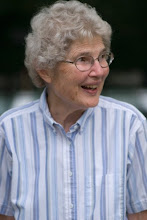Gurcharan Singh Gill, my mother's father, was the second of ten children. He had one older sister, with whom he was very close, and eight younger brothers.
His sister, Naseeb, had gotten married and was teaching elementary school when she got sick. My grandpa was with the group that took her to the hospital for treatment in the middle of the night--only to be refused by the doctors because it was late, and the hospital only accepted patients during standard working hours. My grandpa saw his sister die that night before the hospital opened its doors.
Two of my first cousins have Naseeb as their middle name, as does one of my mother's cousins (who is younger than I am). Someone--my mother, my grandfather, my grandmother, or maybe one of my aunts--told me the story when I was young. It's written down in a family book as well, but perhaps because there's still some pain attached to it to this day, it's not a story we tell often.
My mind has come back and back to it, over the years, though. As a kid, I used to imagine what sort of person Nasib, this sister my grandpa had lost, this aunt I didn't have, was. Maybe that's how I first developed the mind of a writer: by knowing there was a space I could never, in this life, fill.
I've thought about Nasib since and what her death says about the vulnerability of humanity. I think it's my awareness of that vulnerability that makes me so committed to religion: because life is delicate, I feel like we need to love and be good to each other, as Jewish, Sikh, Mormon and countless other faiths' prophets have taught.
The story of Nasib's death, maybe, has also shaped the way I think about past, present, and future. I feel like both the pain and the love that filled the past are things we need to remember. I am grateful for a present in which I've been blessed to live past twenty-five: the age when my testicular cancer would have killed me, if something else hadn't. And I want to work toward a future that is better: one in which fewer Nasibs die of treatable conditions outside of a hospital at night, a future in which the good my family does becomes on of many ways in which Nasib is remembered.
Reading at Writ & Vision Thursday
-
I'm going to be doing a reading at Writ & Vision in downtown Provo at 7 pm
this Thursday.
I'm excited: I love to read my work, but I don't actually do so v...
6 years ago

Did you know that the house that Jasvinder and Ranjeet built, which was finished around the time that mom visited India, is named "Nasib House?" I'll have to find the photo I took of the name on the gate. I'm glad that Jasvinder (Nasib's widower) and Ranjeet (Nasib's cousin, and also Jasvinder's second wife) remember and honor her.
ReplyDelete